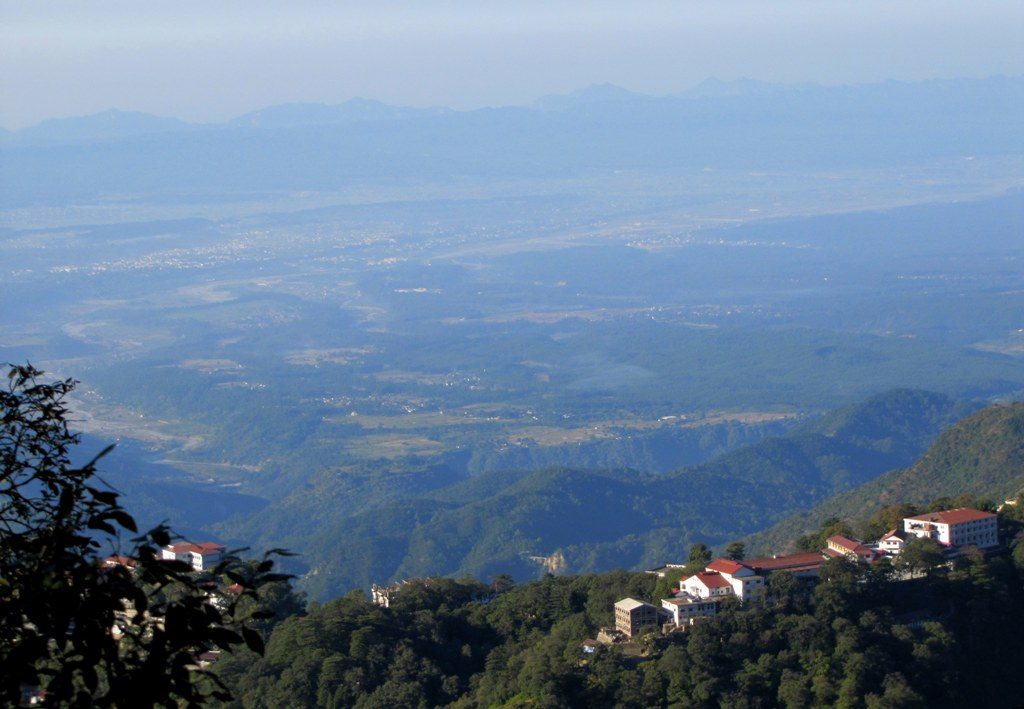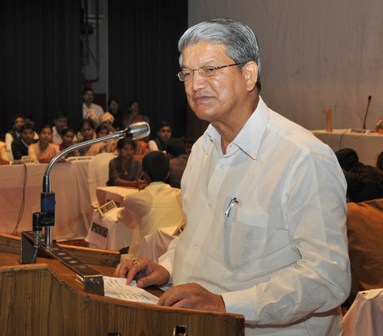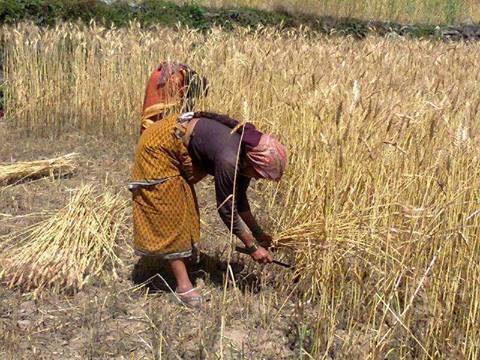Dehra Dun : Uttarakhand chief minister Harish Rawat recently announced that he had grandeur plans of not only stopping migration from the villages in the interior and upper reaches of this small hill state in four years, but would ensure reverse migration in the next seven years, so that the people from the townships start heading for the villages.
Though appreciated by all and sundry there were few takers for the announcement even with a pinch of salt. Migration from the villages to the townships and plains of the state in search of greener pastures has taken serious proportions to the extent that a number of villages today wear a deserted look as almost every one has left leaving the fields unattended.

Dehradun Valley Uttarakhand
Though the problem of migration from the villages is almost as old as the state itself, but it has become acute over the last few years, as employment opportunities have simply not come up in the interiors and far flung villages and facilities have not picked up. There are no health, education and connectivity facilities in these areas and the state government has simply not been able to provide them.

Besides as agriculture in the villages is totally based on the rains with no irrigation facilities, the produce is hardly enough from the small land holdings to sustain the families. The little that the villagers hope to get from their fields is destroyed or eaten by the wild animals, leaving the people with nothing to fend for themselves.
Chief minister Harish Rawat claims that he will stop the migration from the villages by opening up job and other opportunities in the villages in the interiors and far flung reaches, but how will he go about it is anybody’s guess. In fact he claims that the opportunities will be so diversified and manifold that people from the townships will go the villages to benefit from them.
Though it is not sure where Mr Harish Rawat will be after four years, as elections will be due in Uttarakhand in the next couple of years and it is very doubtful that the Congress will return to power taking into consideration the fact that the people change the party in power every alternate time, but if he has any concrete programmes for stopping the migration, it is something that the people of the state eagerly look forward.
The biggest Achille’s heel to the programme, should one come up will be the implementing machinery. The construction of the flyover on the Haridwar-Paonta Sahib national highway is an exampme of how the implementing machinery works at a pace that would make the tortoise blush. The 798-metre flyover to come up at a cost of about Rs 28 crores has been passing its deadlines for some time now.
Initially planned to be completed in Oct 2014, the deadline of the flyover has now been extended to June 2015, but it is is very unlikely that it will be even half complete by then. Not for any other reason but the fact that despite work having started on the project in Sept 2013 the work is progressing at an awfully slow pace with just a handful of labourers at the construction site and just four pillars having come up.

And then ofcourse there is the state bureaucracy which has been at the receiving end eversince Uttarakhand came into being about 15 years back, but has not batted an eye lid at the number of adverse comments hurled at it right from the masses to the chief minister himself and his ministerial colleagues who have held the babudom responsible for various malaise afflicting the state.
Recently the flamboyant chairman of the Uttarakhand Mineral Development Council, Kunwar Pranav Singh, who also happens to be a prominent Congress leader of the state, told newspersons that the state bureaucracy had failed to carry forward the development initiatives of the state government and was lacking in implementing even the development announcements made by the chief minister himself.
Mincing no words he alleged that several development schemes related to power, irrigation and drinking water in his Khanpur consistuency had not been taken seriously by the state bureaucratic machinery. “Only five per cent of the decisions taken at the Nov 24 review meeting linked to my constituency, that was chaired by the chief minister himself have been implemented so far”, he claimed.
Under such circumstances it is not without reason that the bold plea made by the chief minister of stopping migration from the villages in the upper and inner reaches of the state and starting a reverse migration from the townships to such villages is being taken lightly by even the staunchest supporters of Harish Rawat and the Congress.
A journalist with over 40 years of experience, Jagdish Bhatt was Editor, Hill Post (Uttarakhand).
Jagdish had worked with India’s leading English dailies, which include Times of India, Indian Express, Pioneer and several other reputed publications. A highly acclaimed journalist, he was a recipient of many awards
Jagdish Bhatt, aged 72, breathed his last on 28th August 2021 at his Dehradun residence.



